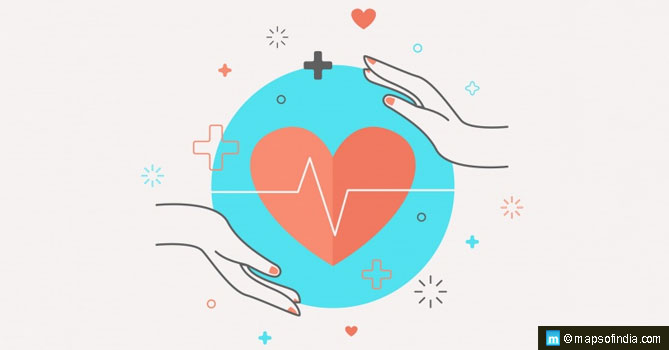Parkinson’s disease is a neurological disorder that disrupts an individual’s movement. The exact causes of Parkinson’s disease are not known yet, but experts state that it can be due to genetic makeup or any nerve cell breakdown. Parkinson’s disease cannot be cured but can be managed and treated over time.
The symptoms are mild at the beginning and develop gradually over time. However, the symptoms may be different for every individual.
Following are some of the symptoms of Parkinson’s disease:
- Tremors or shakiness of certain parts of the body
- Imbalance of the body
- Stiffed arms or legs
- Tendency to fall
- Slow movement
- Change in speech (slowed speech)
- Difficulty writing
- Trouble sleeping
- Mood disorder such as anxiety, depression
- Hallucinations
- Constipation
What causes Parkinson’s disease?
The exact causes of Parkinson’s disease have been not established yet, but experts have stated a few factors that may lead to Parkinson’s disease. Insufficient levels of hormones dopamine and norepinephrine can lead to Parkinson’s disease.
Dopamine is a neurotransmitter that is responsible for the body’s movement and coordination. Insufficient levels of dopamine or, if dopamines are dying, it disrupts an individual’s movement.
Norepinephrine is another neurotransmitter mainly responsible for an individual’s blood circulation around the body and bodily movements.
Parkinson’s disease can sometimes be hereditary as well. If there is a history of Parkinson’s disease in the family, it may be inherited by the following generations.
Who is most likely to develop Parkinson’s disease?
Individuals who are most likely to develop Parkinson’s disease are:
- Individuals aged 50 or above
- Males are more like than females to develop Parkinson’s disease
- Family history of Parkinson’s disease
Diagnosis and Treatment:
Doctors look for symptoms while performing physical examinations of an individual along with their history of health. Doctors sometimes also inquire about the family history of certain diseases to find out whether it is due to a genetic factor.
Parkinson’s disease is treated based on the level of the disease. Individuals with mild symptoms get essential treatments such as light medication, balanced dieting advice, and other lifestyle changes (sleeping duration, exercises, etc.). They get treated with a combination of medication, therapies, and changes in lifestyle.
Individuals who have difficulty with their speech may get occupational therapy or speech therapy. Many individuals also get physiotherapy to help with their imbalanced and movement difficulties.
A few simple precautionary measures can reduce the chance of an individual developing Parkinson’s disease, which includes:
- Avoid using toxins such as pesticides and herbicides.
- Exercising regularly.
- Please do not ignore any symptoms, no matter how minor they may be.
- Incorporating certain foods in the diet, such as turmeric, berries, apple, tea, red grapes, etc.
- Try to avoid sunflower oil and do not reuse the same oil for cooking/frying another leftover meal or remains extra from a previous dish.
Parkinson’s disease is a neurological disorder that does not have any cure. However, it can be managed and treated according to its severity, reducing the chance for an individual to face disruption in their life.




